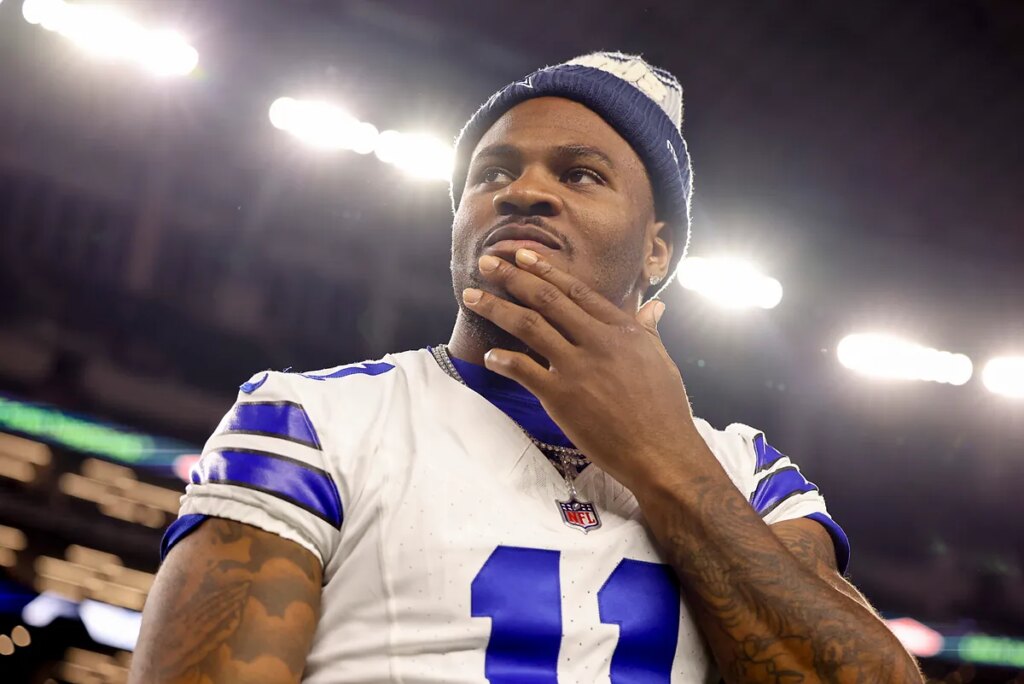Micah Parsons, the Dallas Cowboys‘ dynamic linebacker, is at the center of a contractual dispute that could redefine how the NFL classifies its players.
The issue stems from the league’s rigid positional definitions, which may not accurately reflect the evolving roles of modern defenders. Parsons‘ grievance over his fifth-year option salary highlights a systemic flaw that could have broader implications for the league.
In April 2024, the Cowboys exercised Parsons‘ fifth-year option, designating him as a defensive end. This classification set his 2025 salary at $21.324 million.
However, Parsons contends that his primary role is that of a linebacker, which would entitle him to a higher salary of $24 million.
The Collective Bargaining Agreement (CBA) stipulates that the fifth-year option is based on the position where a player took the most snaps in their third season.
According to Pro Football Focus, Parsons played 87.2% of his defensive snaps on the line, with 12.7% as a linebacker and 0.1% as a defensive back.
Despite this, the NFL classified him as a defensive end, leading to the current dispute.
The NFL’s positioning system under scrutiny
Parsons‘ case underscores a significant issue within the NFL: the league’s positional classifications are outdated and fail to account for the hybrid roles that many modern defenders play.
As noted by Pro Football Talk, the Cowboys are not the primary counterpart in this grievance; it is the NFL’s classification system that is being challenged.
This situation raises questions about whether the league’s rules are keeping pace with the evolving nature of the game.
The NFL has responded robustly, stating it will “vigorously defend” against Parsons‘ claim.
The league’s position is that Parsons‘ role primarily involves playing with his hand on the ground, a characteristic of defensive ends, rather than standing up as linebackers typically do. This technical distinction is central to the ongoing dispute.
Potential implications for the NFL
If Parsons‘ grievance is successful, it could set a precedent for other players in similar situations.
The NFL may be forced to reevaluate its positional definitions and consider more flexible classifications that better reflect the roles players actually perform on the field.
Such a change could have significant financial implications, as salaries for certain positions are higher than others.
Micah Parsons‘ grievance is more than just a contractual dispute; it is a challenge to the NFL’s outdated positional system.
As the league continues to evolve, it may need to adapt its classifications to better align with the realities of modern football.
The outcome of this case could have far-reaching consequences for how players are valued and compensated in the future.
Read the full article here


